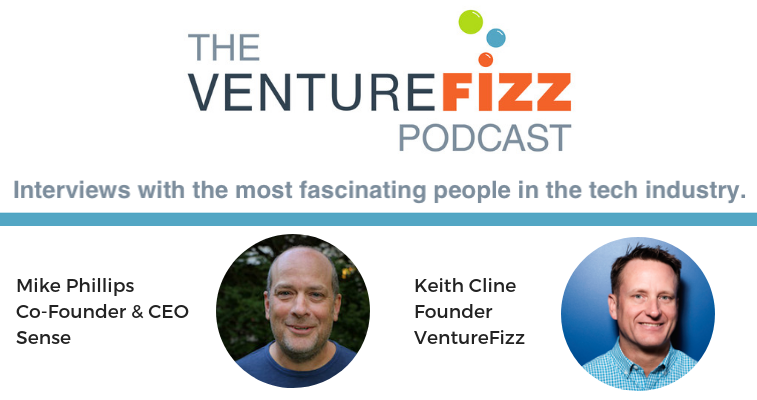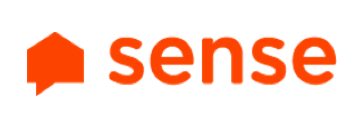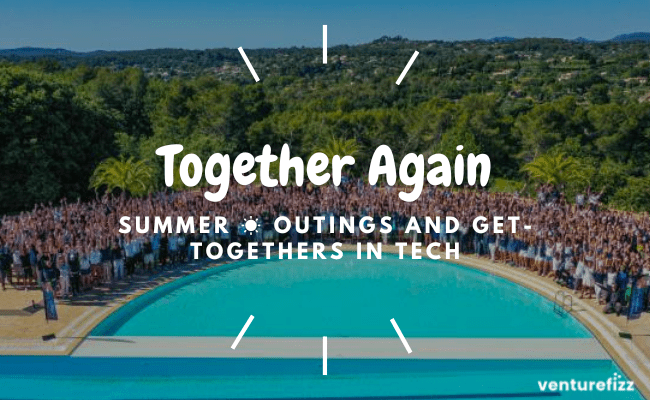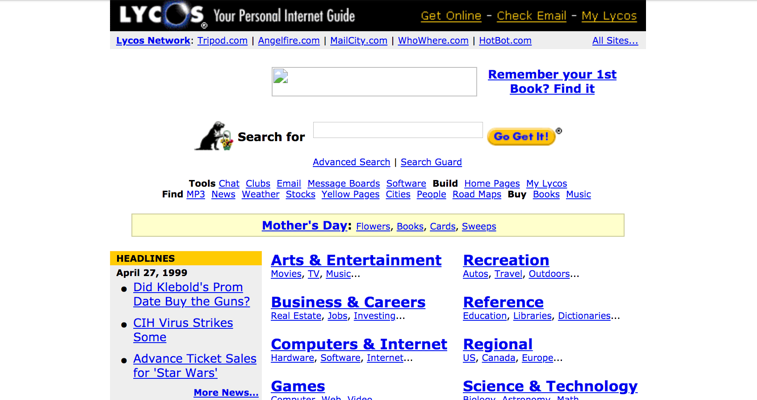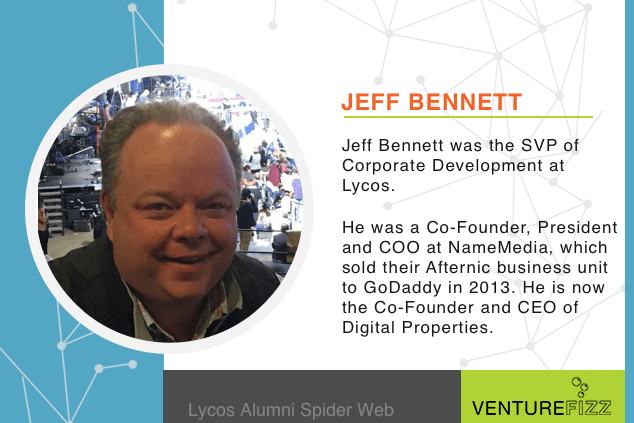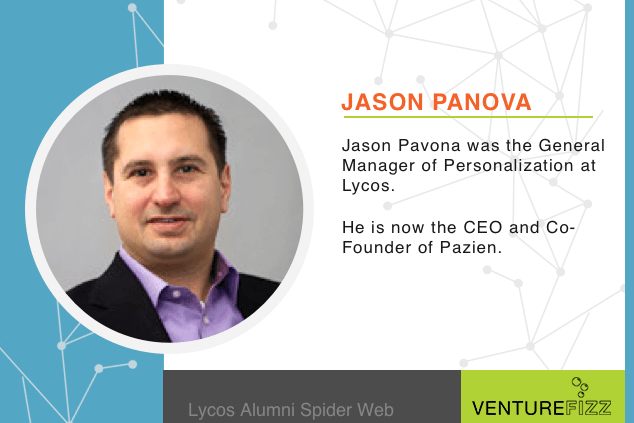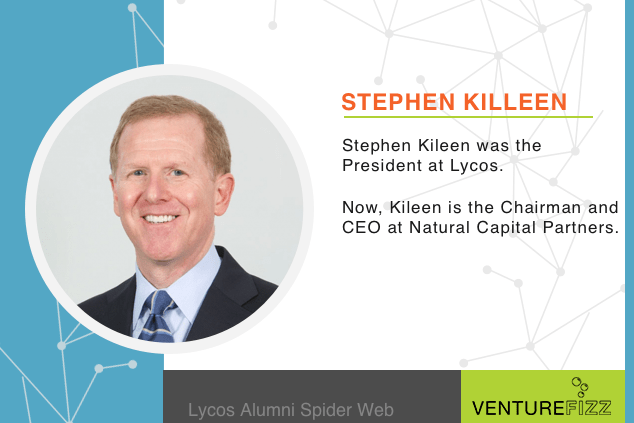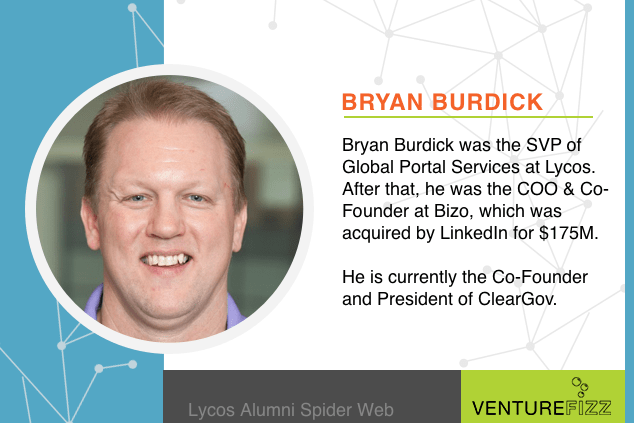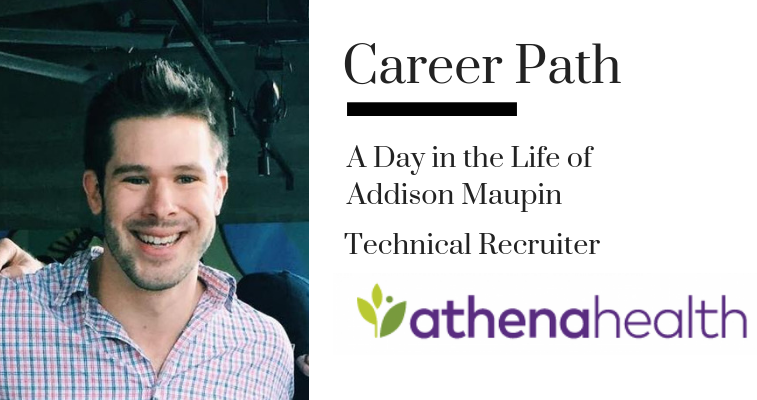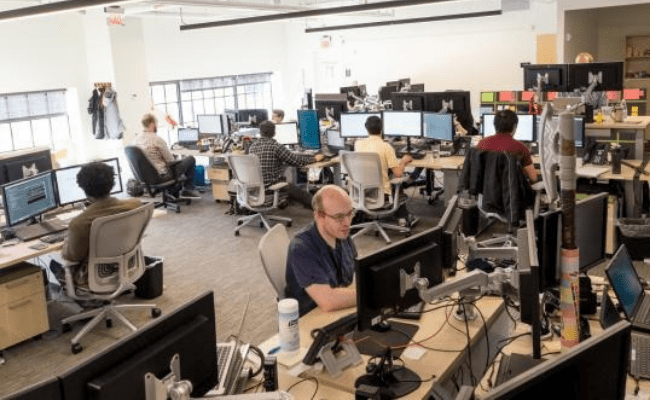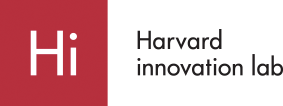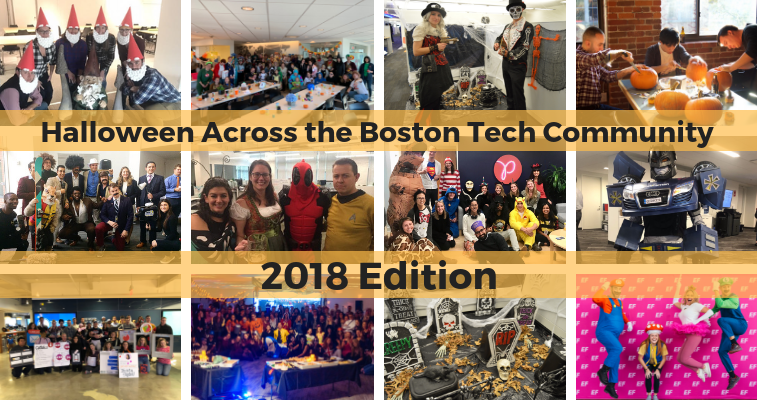What does the career path and a day-in-the-life look like for a Technical Recruiter at athenahealth? We connected with Addison Maupin to find out.
Visit athenahealth's BIZZpage for their latest job opportunities!
Where did you grow up? What did your parents do for work? What was your very first job (before any internships)?
I grew up in Cincinnati, Ohio. My dad owned his own landscaping company, and my mom was a teacher. My very first job was starting my own lawn mowing business.
You graduated from Boston University in 2008, right as the financial crisis was about to hit. What were your initial jobs out of school and what did that period teach you?
My initial job out of school was to lead the writing program for an ESL tutoring organization. I was laid off after a year-and-a-half there. Following that, I was unemployed for the better part of a year. No period of time post-college has taught me more. It’s what I think of the most as I interact with job-seekers. I’ll never forget how brutal it was to search for a job during that time with minimal work experience that was relevant to the areas I wanted to take my career.
How did you get into recruiting?
I fell into it. I was called by a recruiting firm that was willing to train me, and I didn’t have many other options. I realized very quickly how much I loved it. It allowed me to help people every day, and eventually teach and train new employees on what I had learned. Those were two things I was interested in doing before starting my career in recruitment, so it was a natural fit.
What did you learn in terms of running recruitment process outsourcing programs at large companies like CVS Health, General Motors and other companies?
I learned that even the largest and most successful companies in a given industry undergo large-scale, tumultuous change with surprising frequency. Companies are merging, getting acquired, and buying out other companies like never before. It helps me greatly to structure conversations with people that get caught up in those situations and are affected personally by them.
Why did you decide to join the recruiting team at athenahealth and can you share the high-level responsibilities of your current position as Technical Recruiter?
First and foremost, I wanted to join a software company that builds products that genuinely help people. Athenahealth is the epitome of that. Secondly, I wanted to find a team that I liked as much as my team at my last company, which set a high bar. I’ve never felt more aligned with an interviewing team as I did following my interviews with athenahealth.
As a Technical Recruiter, I support some of the most niche areas of the business, including Infrastructure-as-a-Service, Platform Engineering, and Business Intelligence. IaaS and Platform are working towards enabling microservice architecture via automated solutions across the entire technology stack. Business Intelligence is working towards providing reporting services across all areas of the business. Needless to say, it’s an exciting time to join any of these three groups!
I spend most of my time fleshing out a sourcing strategy for finding the best talent in these areas. I’m always exploring new ways to source, organize and present information, and collaborate with technical teams to build an airtight end-to-end hiring process.
Day in the Life
Coffee, tea, or nothing?
Coffee
What time do you get into the office?
Usually 8:30 AM.
What is something you look forward to everyday in your role?
Using tools that are new to me, and discovering ways of using them to make my life and my managers’ lives easier.
Every day is different, but can you outline what a typical day looks like for you?
I’ll always spend a chunk of time in the morning organizing my day. I’ll usually source and reach out to candidates in the morning, and schedule phone screens for the afternoon. These activities are spread around meetings I have with my internal team, and also with my hiring leaders. I do also spend time every day learning more about the roles i’m staffing for and the techniques I can utilize to best fill those roles. This involves watching online classes in Cloud Engineering and other subjects, watching product demos, etc.
What time do you head out of the office?
Usually about 5:30 PM.
Do you log back in at night or do you shut it down completely?
I log back on. Often candidates cannot talk during working hours, so I need to make sure I make myself available to them as needed.
Any productivity hacks?
Yes - the system that I use to track all progress on a given position is the same tool I use to correspond/collaborate with the hiring teams that I work with. It’s saved me a lot of time.
What are the 3 apps that you can’t live without?
Mint, Spotify, and Reddit
What professional accomplishment are you proudest of?
My best stretch of hiring when I was supporting Equifax for Sevenstep. I went over 13 months without a single offer decline, which included a month with 18 hires (3 of which were SVP level, 1 of those 3 had been open for over two years before I filled it).
Who do you admire or call upon for professional advice?
My best friend Tom. He began his career for a marketing agency, and he’s made his way into a DevOps engineering role without a degree in Computer Science or any formal training on the subject. He’s a great example of how much someone can do professionally when they dedicate themselves to moving into areas that might be out of their comfort zone.
Keith Cline is the Founder of VentureFizz. Follow him on Twitter: @kcline6.
Image courtesy of Addison Maupin.

